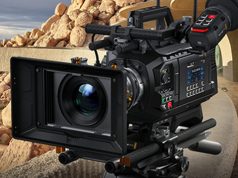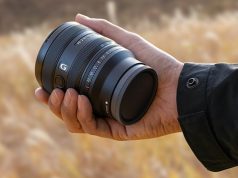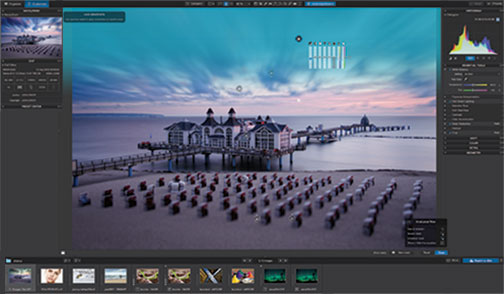
San Francisco, CA—DxO released DxO PhotoLab, formerly DxO OpticsPro, its RAW conversion software for Mac and PC. DxO PhotoLab introduces a local retouching solution that is fully integrated into a nondestructive RAW workflow.
The program includes former Nik Software’s U Point technology, an auto mask brush, a graduated filter and also a new repair tool. In addition to these brand-new features, its RAW file automatic lens-sharpness correction function has been enhanced.
DxO OpticsPro Now DxO PhotoLab
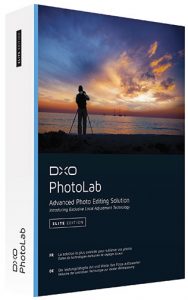 First released thirteen years ago, DxO OpticsPro offered the first software-based optical correction based on laboratory-grade mathematical models. Today, DxO OpticsPro is a complete RAW conversion solution that has outgrown its initial scope. It provides features like DxO Prime noise reduction technology and DxO Smart Lighting, an intelligent exposure tool.
First released thirteen years ago, DxO OpticsPro offered the first software-based optical correction based on laboratory-grade mathematical models. Today, DxO OpticsPro is a complete RAW conversion solution that has outgrown its initial scope. It provides features like DxO Prime noise reduction technology and DxO Smart Lighting, an intelligent exposure tool.
Furthermore, by adding local adjustment tools, DxO OpticsPro now gives photographers new creative opportunities. As a result DxO is highlighting this evolution by giving its software a new name that reflects its versatility: DxO PhotoLab.
Universally Accessible U Point Technology
Through the acquisition of the Nik Collection assets from Google, DxO integrated U Point technology. This is a favorite feature of millions of photographers who use Nik Software products. This local adjustment technology allows users, with a few clicks, to make complex selections that would normally take time-consuming work using a brush tool. Following the recent acquisition, DxO PhotoLab is now the only software to offer U Point technology in a nondestructive RAW workflow.
To provide photographers with all the tools they need to make local corrections, DxO rounded out PhotoLab’s features with an auto mask retouching brush for making precise selections, especially on portraits. Also added was a graduated filter tool that’s useful for landscape photography. The tools share many similarities with Control Points. They give users access to essential settings options. These include exposure, contrast, white balance, micro-contrast, vibrancy, sharpness and the addition of a bokeh effect. For a better user experience, all of these options are displayed in the local equalizer above the image, next to the area being retouched.
The controls are also fully integrated in DxO PhotoLab’s RAW conversion feature and are nondestructive. For example, users can restore highlights locally by using the extra data contained in the RAW file without changing the rest of the photo. Photographers who use JPEG files can also use the local adjustment tools.
DxO PhotoLab Repair Tool
DxO PhotoLab also includes a repair tool that has been rebuilt from the ground up. The interface features a simple brush that can be used on the areas that need retouching. However, its underlying algorithm was developed to provide much better—and faster— results. The revamped repair tool is now a fully formed corrective tool. It was redesigned to let users quickly and easily get rid of undesirable elements in photos.
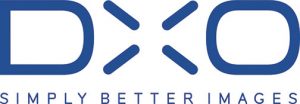 In addition, lens sharpness has been a feature of former DxO OpticsPro for the last decade. Available for the nearly 40,000 camera–lens combinations DxO has analyzed in its laboratory, this feature applies the most appropriate sharpness correction to each point in the image’s field of view. It also accounts for the type of equipment and shooting settings used.
In addition, lens sharpness has been a feature of former DxO OpticsPro for the last decade. Available for the nearly 40,000 camera–lens combinations DxO has analyzed in its laboratory, this feature applies the most appropriate sharpness correction to each point in the image’s field of view. It also accounts for the type of equipment and shooting settings used.
Moreover, not to detract from image quality, the lens sharpness optimization function adapts to the image’s ISO level. This was a part of the tool that was a particular point of focus in the new DxO PhotoLab release. “RAW images are now much sharper when shot at medium-sensitivity settings, while noise levels remain well controlled. This improvement, especially when used in conjunction with DxO’s exclusive Prime noise-reduction technology, opens up even more opportunities for low-light photography,” announced DxO.
The Essential and Elite editions of DxO PhotoLab for PC/Mac have the following prices: DxO PhotoLab Essential, $129; DxO PhotoLab Elite, $199.
Photographers who purchased a license for DxO OpticsPro can get a discounted upgrade license for DxO PhotoLab. They can obtain it by signing into their customer accounts at dxo.com. Photographers who purchased or updated a DxO OpticsPro license on or after September 1, 2017 can upgrade their software for free. dxo.com



